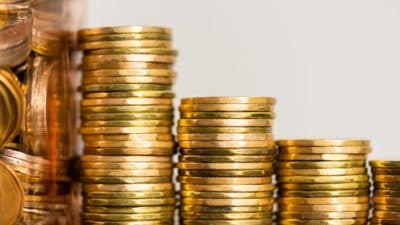The Financial Post revealed March 29 that Bombardier, Inc. (TSX:BBD.B) compensated its top five executives and Board Chairman Pierre Beaudoin to the tune of US$54.5 million over the past two fiscal years, despite delivering US$6.3 billion in losses.
While the fat cats in the C-suite got paid handsomely for undertaking a turnaround plan that is still very much in doubt, almost 15,000 current employees found out they’ll be on the unemployment line by the end of 2018.
The rich get richer on the back of taxpayer dollars.
Remember, it’s not just about the $372.5 million loan announced by the Federal Government in February; Bombardier has been taking money from the feds since 1965 when it borrowed $35 million.
Since then, according to the Fraser Institute, it’s managed to cajole various governments in power (Liberal and Progressive Conservative) into handing over $1.1 billion, and that figure doesn’t include the Quebec government, which is said to have advanced more than $2 billion over the years.
Recently, I discussed how insane it was to own Valeant Pharmaceuticals Intl Inc. (TSX:VRX)(NYSE:VRX) given that it had paid out US$165.1 million to the current CEO and CFO along with former CEO Michael Pearson. Valeant’s largesse makes Bombardier look like cheapskates in comparison — but this is no laughing matter.
Study after study has shown that above-average compensation does not produce market-beating financial results or extraordinary stock performance.
Bombardier CEO Alain Bellemare received total 2016 compensation of US$9.5 million, which included US$5.2 million in the form of stock awards and options. Let’s forget this little pot of gold for a moment. Bellemare’s cash compensation and other non-incentive benefits were US$4.3 million — a substantial amount for 99% of Canadians.
In my Valeant article, I used Lars Rebien Sørensen, CEO of Novo Nordisk A/S (ADR) (NYSE:NVO), as an example of sensible CEO compensation. Sørensen was paid the equivalent of US$4.3 million in 2016 with just 23% of the total generated from stock awards. Sørensen retired in January after 16 years as CEO.
Novo Nordisk had 2016 revenue and net profits of US$16.2 billion and US$5.5 billion, respectively. So, Sørensen was paid 0.03% of his company’s total annual revenue. Bellemare was paid 0.06% of Bombardier’s total revenue of US$16.3 billion, almost identical to Novo Nordisk, despite losing US$981 million.
On a relative basis, the former Novo Nordisk CEO made US$6.5 billion more than the Bombardier CEO, and yet Bellemare was paid twice as much. Even if you subtract the stock and option awards, he still did very well.
What’s laughable is Bombardier’s response. “For instance, 85% of the compensation of the president and CEO is at risk and 28% is comprised of stock options whose value depends on the appreciation of the Bombardier stock, something that would of course benefit all shareholders,” wrote company spokesman Simon Letendre in an email to The Financial Post.
I have two problems with this.
First, Bellemare had US$4.3 billion in compensation that wasn’t at risk (Bombardier considers the US$2.4 million in non-equity short-term incentives at risk; I do not), providing the executive with a very comfortable living. Second, the last thing you want to provide a CEO in this kind of situation is a short-term carrot like a higher share price; that’s bound to work against you.
The only reward should be for producing real revenue growth and sustainable profits.
As it stands, Bombardier is a house of cards.








